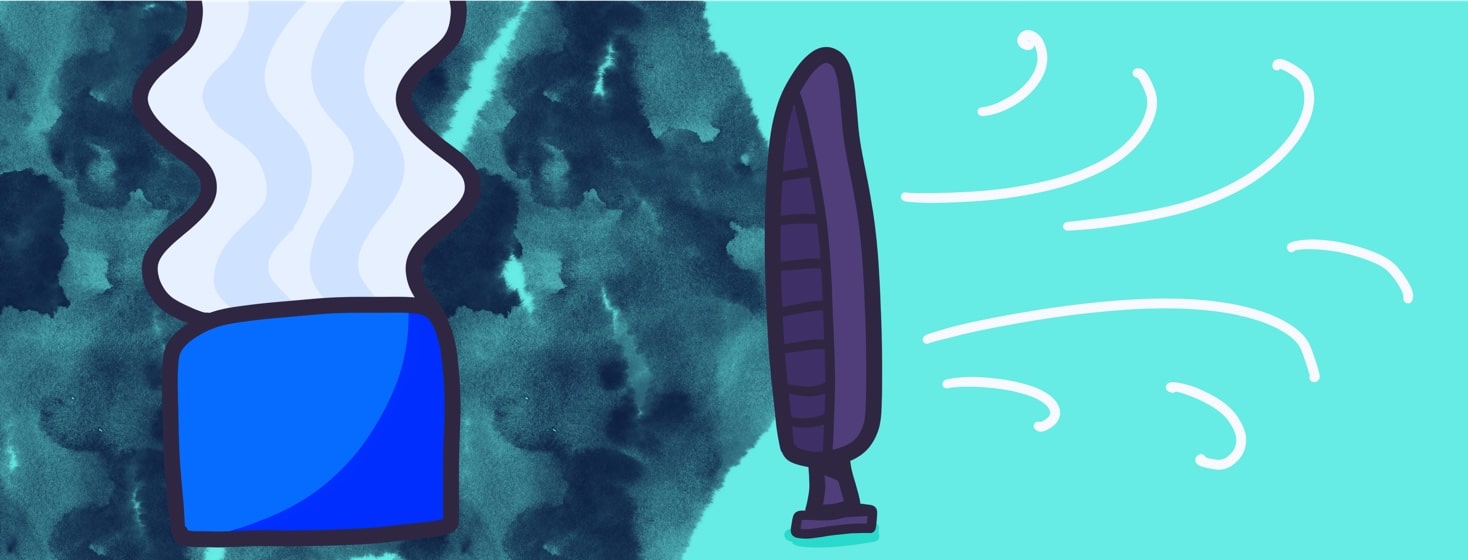The Difference Between Air Purifiers and Humidifiers
Last summer, we had a terrible fire in our valley. For a time, it was a Priority 1 fire. And the building where I work was surrounded by smoke – and the filtration system was pulling the smoke into the building.
I needed an air purifier for my asthma
I could smell the smoke in my office and knew I was in trouble. My eyes were burning, my throat was sore, my nose was running and my lungs felt like they were on fire. I used my inhaler but was still struggling to breathe. I wished I had a portable air purifier in my office as I did at home.
I quickly left the office and headed home where we have several portable air purifiers. In my family of 5, all 5 of us have allergies, and 4 have asthma. So we do all we can to keep our home allergy- and asthma-friendly.
I found out that every store in our county of 2,400 square miles was sold out of air purifiers! That's how thick the smoke was from the forest fire.
Preparing for the future
Since we had a trip planned to see family in another part of the state, I decided to buy an air purifier there for my office. I knew they would have plenty of options in stock. And I could find a smaller unit that would be just right for the size of my office.
When we arrived, I asked the nearest employee where the air purifiers were. She said, "Do you mean a humidifier?" I told her no – because humidifiers (not to be confused with dehumidifiers) just put moisture into the air. I needed an air purifier that would do just that – purify (or clean) the air. That was the first time I realized some people don't know the difference between a humidifier and an air cleaner.
How air purifiers and humidifiers affect asthma
Humidifiers
A humidifier will add vapor or steam to the air. But – there is a downside to using them. You can add too much moisture into the air – and that can be a recipe for mold, bacteria, and dust mite growth in your home. Humidifiers also need to be kept very clean.
Mayo Clinic says:1
"Dirty reservoirs and filters in humidifiers can quickly breed bacteria and mold. Dirty humidifiers can be especially problematic for people with asthma and allergies, but even in healthy people, humidifiers have the potential to trigger flu-like symptoms or even lung infections when the contaminated mist or steam is released into the air. Evaporators and steam vaporizers may be less likely to release airborne allergens than many cool-mist humidifiers."
Air purifiers (cleaners)
Portable air cleaners are made to filter the air in a single room. By contrast, furnaces and air-conditioning (AC) units clean the air throughout the house. A portable air cleaner can't clean all of the pollutants in a home. But, a recent study by a Utah pulmonologist showed that using an air purifier can cut indoor pollution in half.2
Like your furnace or AC unit, the filter in an air purifier has to be changed on a regular basis. And the purifiers come in different sizes to clean different-sized rooms. You can learn more about air cleaners in the Environmental Protection Agency's "Guide to Air Cleaners in the Home."3
Is an air purifier right for you?
If you have allergies and asthma, do a little research and see if an air purifier is right for you. Especially if you live in an area that is prone to forest fires or a big city with lots of pollution. I hope this clears up any confusion about humidifiers versus standing air purifiers and how they can impact your asthma.
Has anyone else been using air purifiers? Has it helped? Let me know in the comments below!

Join the conversation